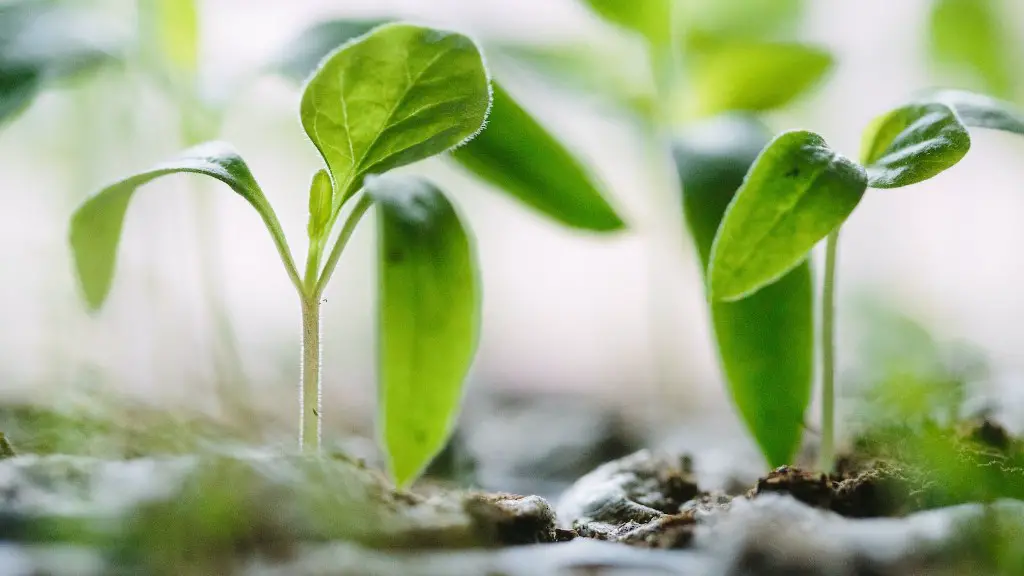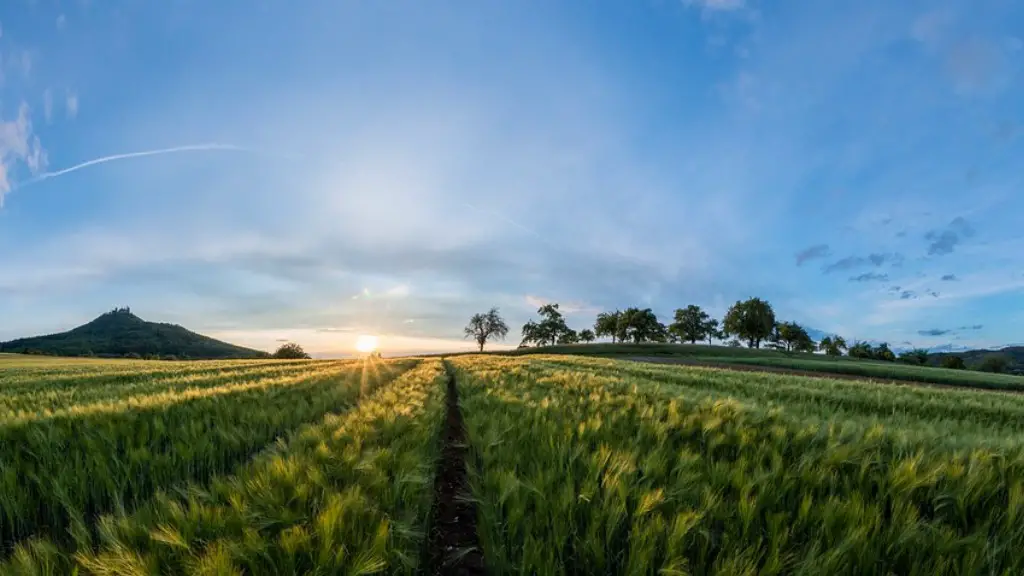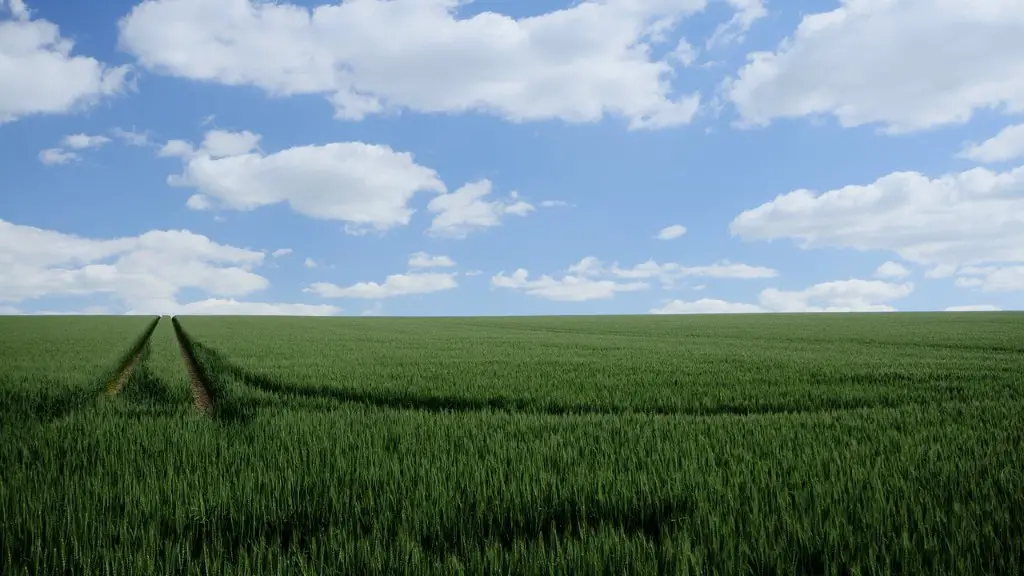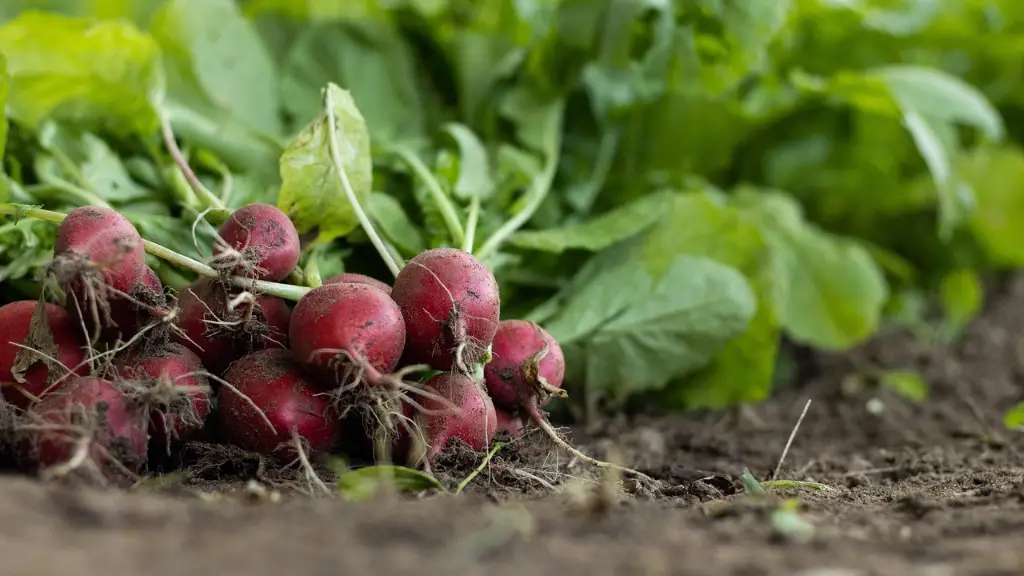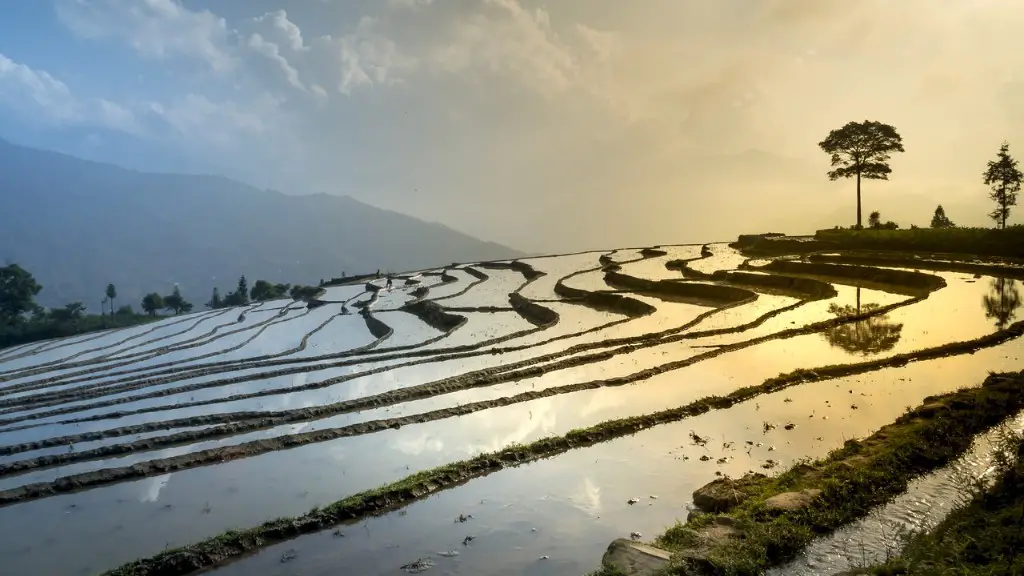Agriculture is the science, art, and practice of cultivating plants and livestock for food, fiber, and other products. The study of agriculture is often referred to as agronomy and it encompasses a wide range of specialized sub-disciplines such as agroecology, crop science, soil science, and horticulture. Agronomists are tasked with studying the production of food, feed, and fiber crops, as well as the management of soil, water, and pest resources.
At the heart of agronomy is the understanding and improvement of crop production, which includes assessing crop genetics and selecting varieties and hybrids. Agronomists are also responsible for understanding and improving plant nutrition, as well as studying cropping systems, land use, and soil management to optimize crop production. Furthermore, agronomists also use their knowledge to develop pest management programs to reduce the impacts of crop pests on production.
Agriculture is a complex and dynamic field with a long tradition, and agronomists need to understand the interplay of environmental, economic, and social factors that affect crop production. They work in a variety of settings, from university research labs and agricultural extension offices, to government agencies and private consulting firms. Agronomists may specialize in a particular field, such as plant physiology, crop pathology, entomology, or weed science. They apply their knowledge to address current agricultural problems and to develop new solutions.
Agriculture has become increasingly more important as the world’s population increases, and agronomists have a major role to play in meeting the demands of this growing population. They are responsible for developing new and improved crop varieties, improving soil fertility, and developing pest control strategies that will help maximize crop production. In addition, agronomists are involved in conservation efforts and plant biotechnology, as well as in monitoring and assessing the impacts of global climate change on food security.
The study of agriculture is a broad and diverse field that encompasses many different subfields. From plant nutrition and pest management, to conservation and biotechnology, agronomy offers a unique opportunity to work in a wide range of settings, making it a great choice for those interested in a career in the agricultural sciences.
AgroEcology
Agroecology is a sub discipline of agronomy which focuses on the study of interactions between crops and the environment. Agroecology combines principles from ecology and the natural sciences with principles of agricultural science, economics, and sociology to examine how different land-use practices can produce sustainable agricultural production. Agroecologists investigate topics such as how to increase crop biodiversity, reduce environmental impacts from agriculture, and create harmony between ecosystems and agriculture.
Agroecology practices also include activities such as applying compost and mulch, intercropping crops, and planting crops in staggered rows to create advantages for crops and their associated soil ecosystems. Agroecological practices are often used in integrated pest management and soil health management programs to help maximize production and reduce harmful environmental impacts. Agroecology is an important sub field of agronomy and can have a major impact on the sustainability of agricultural production.
Agroecology is an invaluable resource for agronomists and is often used to solve a variety of agricultural problems. Agroecological studies have revealed ways to improve crop yields, increase soil fertility, preserve biodiversity, reduce water and fertilizer use, and decrease the risks associated with climate change.
Agroecology is a relatively new field, but its implications for sustainable agricultural management are wide ranging and important. Through agroecology, agronomists can develop techniques and strategies to maximize crop production while minimizing environmental impacts and preserving the health of both the land and people.
Crop Science
Crop science is a field of agronomy which focuses on the genetics and physiology of plants, with a particular focus on crop improvement and production. Crop scientists study plant genetics in order to create new and improved varieties of crops that are more resistant to pests and diseases and more productive. They use their knowledge of plants to develop methods for improving soil fertility, optimizing water use, and managing weeds and diseases.
Crop scientists also work to understand the effects of climate change on crop production and adapt crops to changing environmental conditions. They also develop new ways of farming that are environmentally friendly and can reduce the impacts of human activities on ecosystems. Crop science also involves research on the nutritional value of foods and the safety of food products.
Crop science is a vital field of agronomy and plays a key role in maximizing yields and creating a more efficient and sustainable food system. Through the application of crop science, agronomists can help develop varieties of crops that are more resilient to pests, diseases, changing climates, and environmental challenges, allowing for greater production and higher quality food.
Soil Science
Soil science is an important sub field of agronomy which focuses on the physical, chemical, and biological properties of soils and their effects on plant growth. Soil scientists study the physical and chemical properties of soil, and how these properties interact to foster healthy plant growth. They also work to understand the biology of soil, including its microorganisms, and the role that soil plays in the environment.
Soil science is a critical element of agronomy, as it helps agronomists identify the most suitable soils for crop growth and develop efficient and safe soil management practices. Soil scientists also work to identify effective ways to maintain and improve soil fertility, conserve soil moisture, and reduce soil erosion and compaction.
Soil scientists play a key role in helping agronomists understand soils and the factors that affect crop productivity and sustainability. Through their studies, they are helping to ensure that the best possible soils are available to support healthy crop production and a healthy environment.
Horticulture
Horticulture is a sub field of agronomy which focuses on the production and use of fruits, vegetables, flowers, and ornamental plants. Horticulturalists use their knowledge of plant science to cultivate plants for food, medicine, and ornamental purposes. They work to understand the various factors that affect plant growth and development, as well as the processes and techniques used to grow plants in residential, commercial, and agricultural settings.
Horticulturalists are also responsible for developing pest management strategies, as well as understanding the effects of climate change on plant growth, pollination, and production. They also study the nutritional value and safety of fruits and vegetables, and how different fertilizers and pest management programs affect plant health.
Horticulture is an important subfield of agronomy and is integral to the production of the world’s food supply. Through their work, horticulturalists are helping to ensure that the world’s food system remains sustainable, healthy, and efficient.
Agricultural Economics
Agricultural economics is a discipline of agronomy which involves the study of production and consumption of food, feed, fiber, and fuel. Agricultural economists focus on understanding the economic factors that affect the agricultural industry, such as pricing, production, and consumption. They use their skills to analyze agricultural data and develop strategies to improve the efficiency and competitive advantage of a farming enterprise. Agricultural economists are also responsible for analyzing the economic impact of policies and regulations on agricultural producers and consumers.
Agricultural economists also have a role in exploring the impact of globalization and technology on agricultural production and consumption. They work to assess the effects of global markets, trade, and transportation networks on food security, access to food, and the stability of agricultural markets. Agricultural economics is an important field in the agronomic sciences and is a critical component of sustainable and efficient agricultural production.
Agricultural Extension
Agricultural extension is a sub field of agronomy which focuses on transferring research-based knowledge to agricultural producers and stakeholders. Extension specialists develop and deliver educational information, programs, and activities to help farmers and agribusinesses understand research and make informed decisions. They use their expertise to develop extension materials and programs that help producers adopt new technologies and management practices.
Agricultural extension is an important part of agronomy, as it helps bridge the gap between the scientific research and practical application. Extension specialists are at the front line of agricultural research and have a major role to play in disseminating knowledge and helping agricultural producers adopt new technologies and practices.
Agricultural Engineering
Agricultural engineering is a field of agronomy which focuses on the design and construction of agricultural machinery and equipment, as well as the integration of technology into agriculture. Agricultural engineers design and build machines, tools, and systems that optimize the production and efficiency of farming operations. They develop methods to automate labor-intensive jobs and develop equipment that reduces input costs while increasing yields.
Agricultural engineers also work to develop systems to reduce the impacts of human activities on natural ecosystems. They design systems to minimize the impacts of animal waste, exceed regulatory standards on water quality, and develop techniques to reduce the impact of agricultural production on the environment.
Agricultural engineering is an important field in agronomy and is an integral part of developing more efficient and sustainable farming operations. Through their work, agricultural engineers are helping to ensure that the world’s agricultural sector remains productive and sustainable for the foreseeable future.

